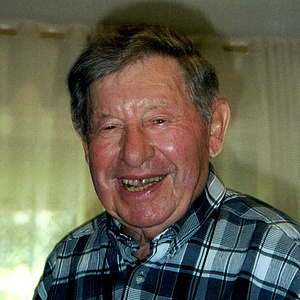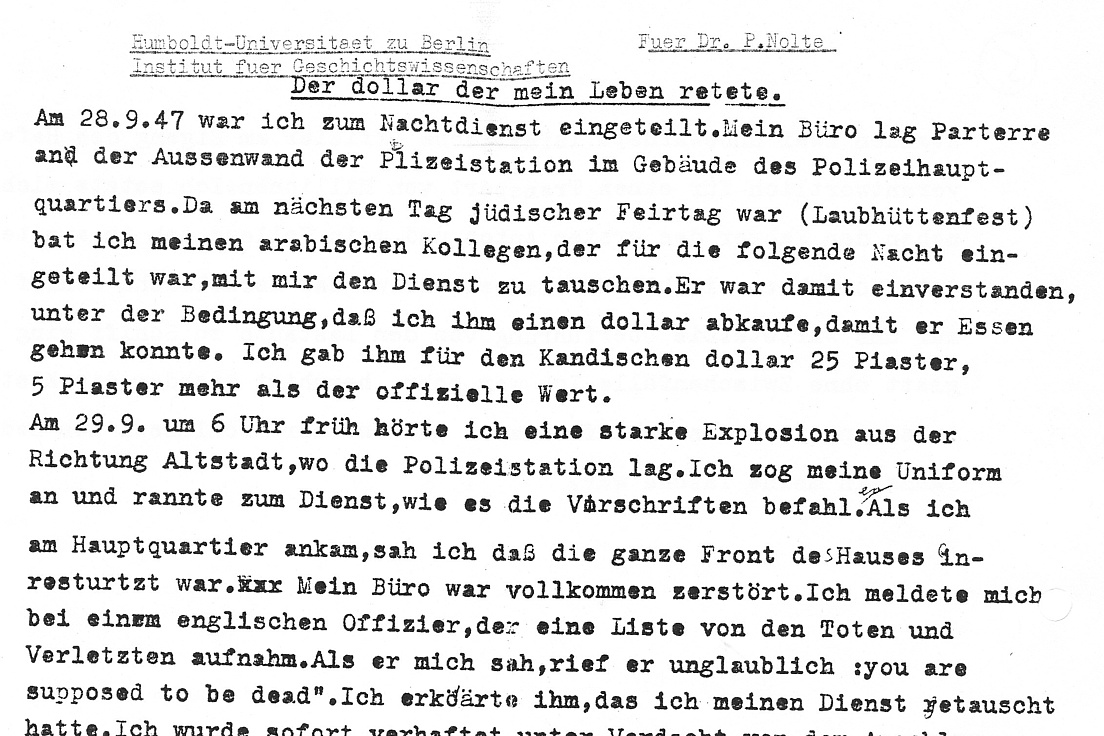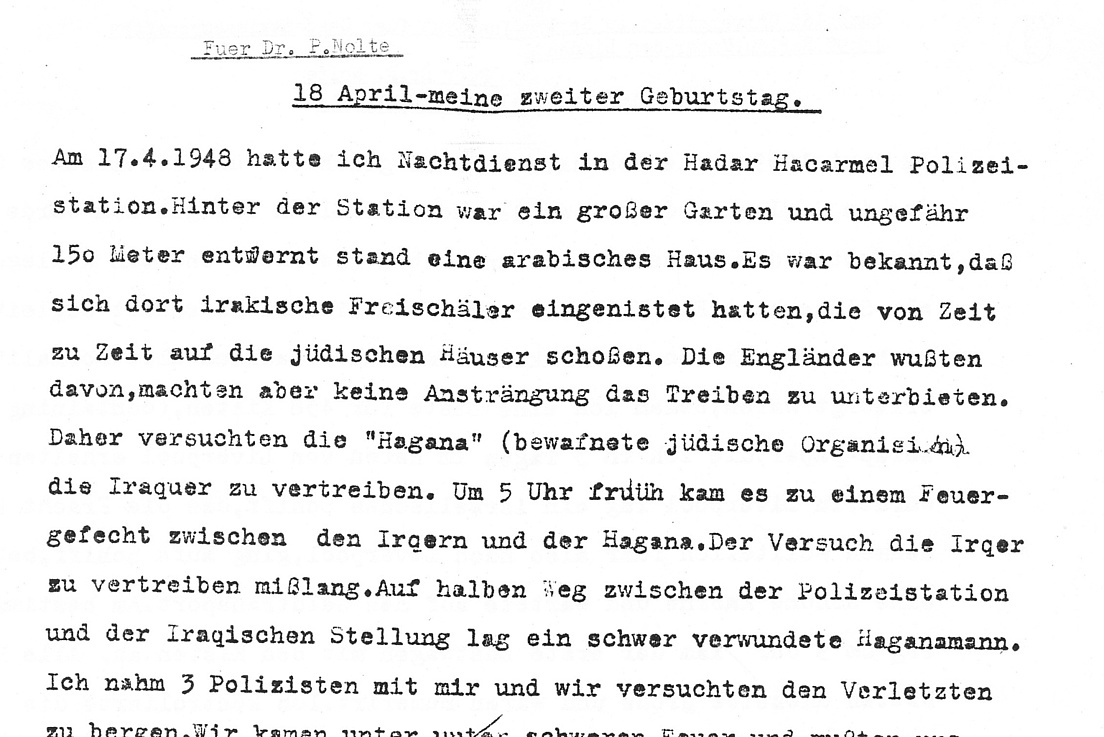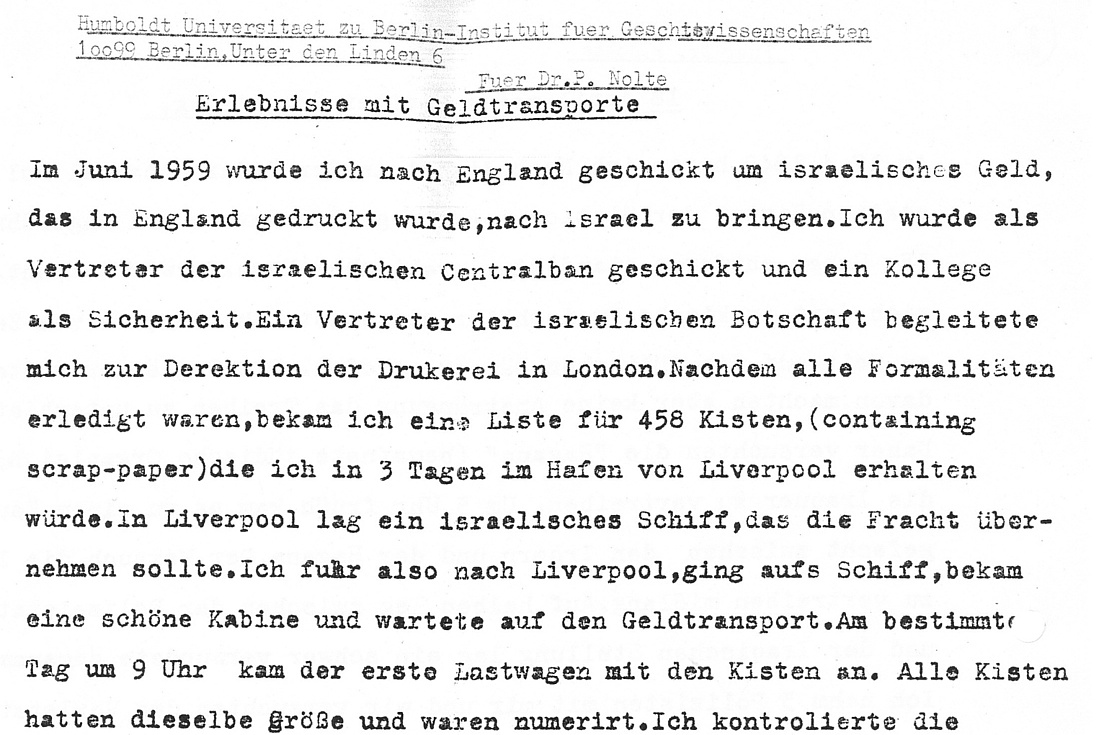When I was expelled from the university, it was a big blow
Relegation and Hachschara camp
Yehuda Benski was originally interested in studying law, but studied dentistry at Berlin University at the request of his family, as he was supposed to take over his uncle's practice in Gdansk. However, he was expelled after just one year at university. Yehuda Benski was one of the Jewish students who suffered double persecution by the National Socialists due to their left-wing political commitment. From summer 1933, a total of over 100 students at Friedrich Wilhelm University were expelled, accused of Communist or Social Democratic activities.
As he had no alternative in Germany, Yehuda Benski decided to emigrate to Palestine. From November 1933, he lived in a Hachshara camp in Magdeburg, where he was trained as a craftsman in a non-Jewish company. It was only here that he came into contact with Zionism, which had not been an issue in his assimilated parental home. One day before his departure, he married his girlfriend Ilse Stein, whom he had met in the preparatory camp.
His family stayed behind in Germany. His father died in 1937; Yehuda Benski's sister did not want to leave their mother, who was in hospital, alone and decided against emigrating. She was arrested in 1943 during forced labour in the Siemens factories, deported to Auschwitz like her mother and murdered there.
Arrival in Palestine and starting a family
Yehuda Benski arrived in Palestine in August 1935. He had to accept all the work opportunities that came his way in order to keep his head above water. He worked on orange plantations, as a construction labourer and as an electrician in a furniture factory. His two sons were born in 1943 and 1947.
A career in the police
At the beginning of 1937, he was accepted into the British Mandate Police, went through the police school in Jerusalem and finally came to Haifa. He continued his legal training, passed language exams in English and Arabic, was promoted very quickly and was finally able to send part of his salary to needy relatives in Shanghai who had fled there from Berlin. In his job, he was very lucky to survive a few dicey situations. For example, he escaped an attack on the police station by Jewish terrorists who wanted to bring about an early British withdrawal because he had spontaneously swapped his shift. He survived a battle with Iraqi mercenaries in Haifa a few weeks before the First Israeli-Arab War in 1948, seriously injured.
After the founding of the Israeli state in May 1948, Yehuda Benski rose through the ranks of what was now the Israeli police force. He managed secret money transports from abroad and organised the personal protection of famous foreigners such as the German Chancellor Konrad Adenauer and the Italian film star Sofia Loren.
Retirement
After his retirement, Yehuda Benski initially worked as an administrator in a chemical factory and then, from 1988, devoted himself to various voluntary activities such as looking after former servicemen and women. A year before his death in 2001, he and his partner of many years moved into a hostel run by the Organisation of Central European Immigrants in Haifa.
Texts by Yehuda Benski
On 28.9.47 I was assigned to night duty. My office was on the ground floor on the outside wall of the police station in the police headquarters building. As the next day was a Jewish holiday (Feast of Tabernacles), I asked my Arab colleague, who was on duty the following night, to swap shifts with me. He agreed, on the condition that I bought him a dollar so that he could go out to eat. I gave him 25 piastres for the Kandyan dollar, 5 piastres more than the official value.
At 6 a.m. on 29 September, I heard a strong explosion from the direction of the old town, where the police station was located. I put on my uniform and ran to the station as ordered by the regulations. When I arrived at the headquarters, I saw that the whole front of the building was in ruins. My office was completely destroyed. I reported to an English officer who was taking a list of the dead and wounded. When he saw me, he shouted in disbelief: "you are supposed to be dead". I explained to him that I had exchanged my service. I was immediately arrested on suspicion of having been involved in the attack. The attack was carried out by an extreme Jewish movement who had thrown a barrel of explosives out of a moving lorry. Only after a lengthy investigation were the British convinced of my innocence and I was able to return to work. My colleague who had swapped places with me was in my office at the time of the explosion and was killed. I still have the dollar to this day, it saved my life.
On 17 April 1948, I was on night duty at Hadar Hacarmel police station. There was a large garden behind the station and an Arab house about 150 metres away. It was known that Iraqi irregulars had taken up residence there and were shooting at the Jewish houses from time to time. The British knew about this, but made no effort to stop them. The "Hagana" (armed Jewish organisation) therefore tried to drive the Iraqis out. At 5 o'clock in the morning there was a firefight between the Iraqis and the Hagana. The attempt to drive out the Iraqis failed. Halfway between the police station and the Iraqi position lay a seriously wounded Hagana man. I took 3 policemen with me and we tried to rescue the wounded man. We came under heavy fire and had to retreat. Only on a second attempt did we succeed in bringing the injured man to safety. In the meantime it had become light and I saw that there was a machine gun, type BRN, in the centre of the carton. I decided to take the machine gun to the station. I took a policeman with me and we ran through the garden. We were immediately fired upon. The first shot hit my police badge and knocked my cap (kolpak) off my head. I jumped forwards to take cover behind a tree. At that moment I was hit by three bullets. At first I didn't realise that I was injured. Only when the blood started to run out of my trousers did I realise that I was injured. An attempt by my colleagues to take me to the station failed. Then an armoured car arrived with English soldiers who fired at the Iraqi position and managed to get me into the armoured car. From there to the station and then by ambulance to the hospital. After three operations, I returned to duty after 3 months. Since then we have celebrated 16 April as my second birthday.
In June 1959, I was sent to England to bring Israeli money printed in England to Israel. I was sent as a representative of the Israeli Central Bank and a colleague as security. A representative of the Israeli embassy accompanied me to the printing office in London. After all the formalities were completed, I was given a list for 458 boxes (containing scrap paper), which I would receive in 3 days at the port of Liverpool. There was an Israeli ship in Liverpool that was supposed to take over the cargo. So I travelled to Liverpool, boarded the ship, got a nice cabin and waited for the money transport. The first lorry with the crates arrived at 9am on the day in question. All the boxes were the same size and numbered. I checked the box numbers according to the list at the bottom and my colleague at the top. Everything went smoothly. The load carriers worked quietly but slowly. At 12 o'clock sharp, the workers took their lunch break and left 4 crates downstairs. Of course, I couldn't let that happen for safety reasons. I approached the foreman, but he wasn't prepared to interrupt the lunch break. But after I promised him 4 bottles of whisky, the 4 crates were carried upstairs. The captain of the ship asked me to make sure that all the crates were loaded by 4 o'clock, as he wanted to leave the harbour with the tide at 5 o'clock. The loading continued. At 4 o'clock on the dot, the foreman told me "it's weir evening now" and the workers were about to leave the harbour. The last two crates remained downstairs. It took all my persuasion and 20 bottles of beer to persuade the workers to take the last 2 crates onto the ship. It therefore took 4 bottles of whisky and 20 bottles of beer for the ship to leave the harbour with the tide. I had new experiences regarding the working methods of English labourers.





